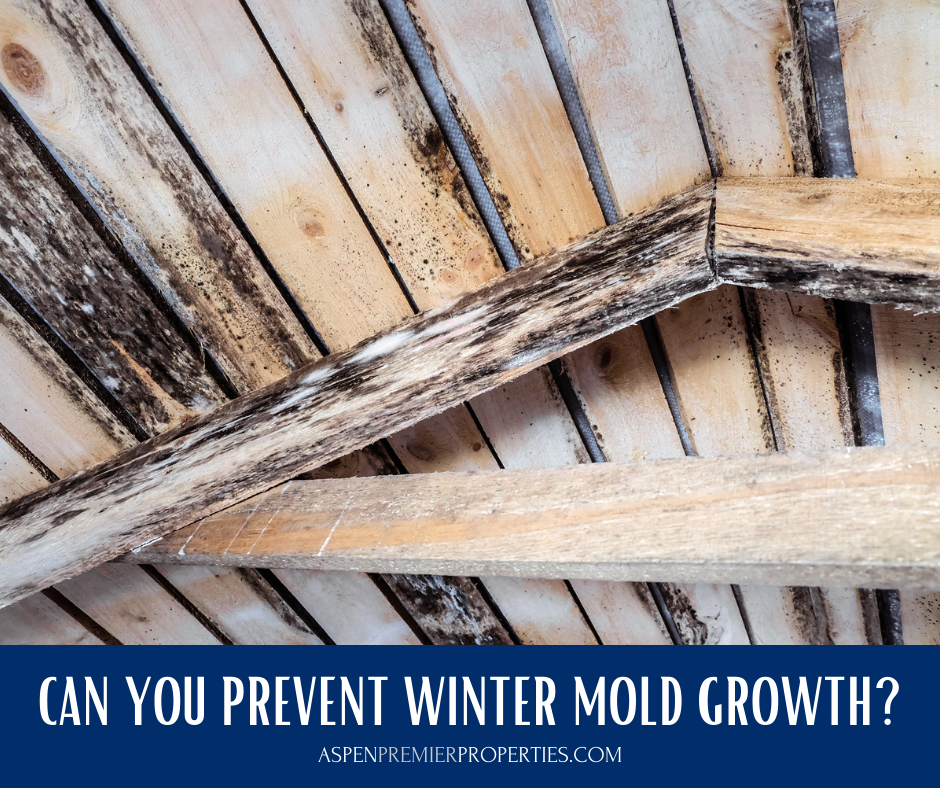
If you’re like many people, you know that mold spores are everywhere. They’re floating around outside, we track them in on our shoes, and they’re even located in the air inside your home. What those spores do is important; if they attach themselves to a damp spot that doesn’t get much natural sunlight, mold colonies will start to grow. When mold colonies develop, they create more and more spores in an attempt to reproduce – and that’s when things start getting dangerous.
Mold colonies are present in more than 50 percent of American homes, and some types of mold can lead to severe – or even life-threatening – health conditions. So what can you do to prevent them from popping up in your space? Here’s what you need to know.
Can You Prevent Mold Growth in Your Home?
It’s possible to prevent mold from growing in your home – even if you have a damp basement. You’re never going to stop all the spores (they exist naturally in the air and on surfaces), but you can stop colonies from forming by following these steps:
- Measure humidity in your home to see where mold is likely to grow.
- Open your windows and let in fresh air.
- Use the exhaust fans in your home.
- Keep an eye on your gutters and drainage.
- Repair leaks quickly.
Here’s a closer look at each mold-prevention tip.
Mold-Prevention Tip #1: Measure humidity in your home to see where mold is likely to grow.
Some areas of your home are more prone to mold growth than others are. Damp areas – like bathrooms, kitchens and basements – are pretty mold-friendly. You can use a hygrometer to measure the current indoor humidity in your space; modern dehumidifiers typically have a built-in hygrometer, too.
Key Takeaway: If any area of your home has a humidity level higher than 60 percent, there’s a good chance that mold will grow there.
Mold-Prevention Tip #2: Open your windows and let in fresh air.
Ventilation is one of the best ways to stop mold from settling on a surface and growing into a colony. Open your windows when you can – and when you can’t, run your ceiling fans, standing fans or even just your home’s HVAC system.
Mold-Prevention Tip #3: Use the exhaust fans in your home.
Your house has pre-installed exhaust fans in the bathrooms and kitchen – it’s a legal requirement. You should run them when you use either of those rooms; they’ll work to suck away mold-friendly water vapor.
Pro Tip: You should run the exhaust fan in your kitchen every time you cook. When you do something as simple as boiling water, you introduce new water vapor into your home; that water will condense on your walls and other surfaces, which promotes mold growth.
Mold-Prevention Tip #4: Keep an eye on your gutters and drainage.
Make sure your gutters are clean and that your downspouts aren’t pouring water directly on your home’s foundation. If water backs up in your gutters, it’ll often sit against the fascia (the outward-facing board on your roof beneath the roof itself) and seep inside. That’s the perfect place for mold to grow. And if water is pouring down to your foundation, it’s soaking the soil around your basement – and a damp basement is the perfect haven for mold.
Mold-Prevention Tip #5: Repair leaks quickly.
Water leaks don’t repair themselves. In fact, they only get worse with time – they won’t simply stay the same. That means you need to call in a professional if you notice a leak anywhere in your home. Leaks are one of the most common causes of mold in American homes, and they can come from failing roofing materials, pipes or even excess snow melt around your foundation.
Are You Selling or Buying a Home in Aspen?
If you’re ready to sell your home in Aspen, Woody Creek, Basalt, Carbondale or Snowmass, we may be able to help you.
Get in touch with us right now to find out how much your home is worth – and discover how we’ll be able to help you sell it quickly and for top dollar.
If you’re also looking for a home for sale in Aspen or a nearby community, check out our listings by price:
- $200k to $300k
- $300k to $400k
- $400k to $500k
- $500k to $600k
- $600k to $700k
- $700k to $800k
- $800k to $900k
- $900k to $1 million
- Over $1 million
























